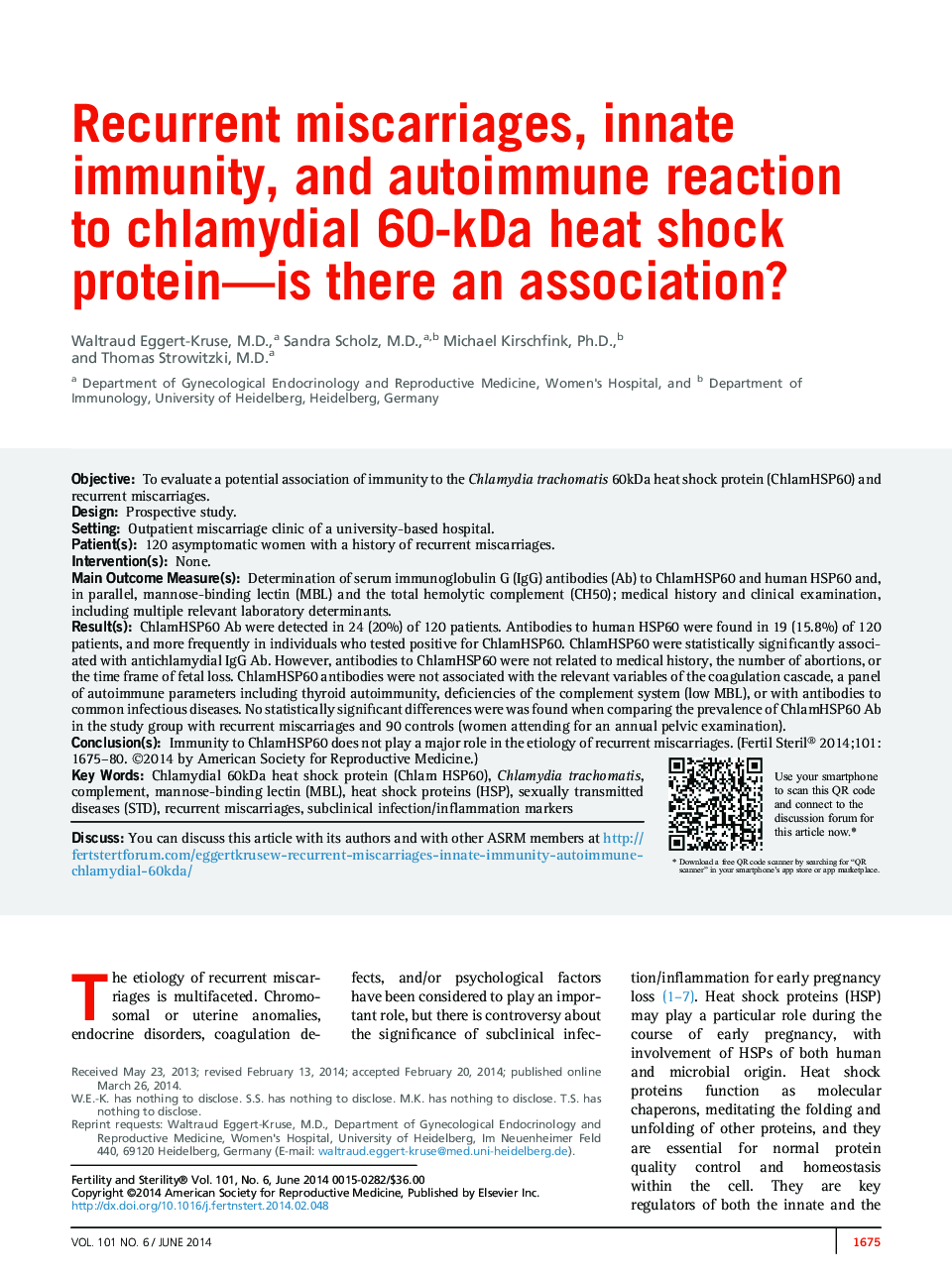| Article ID | Journal | Published Year | Pages | File Type |
|---|---|---|---|---|
| 6182069 | Fertility and Sterility | 2014 | 6 Pages |
ObjectiveTo evaluate a potential association of immunity to the Chlamydia trachomatis 60kDa heat shock protein (ChlamHSP60) and recurrent miscarriages.DesignProspective study.SettingOutpatient miscarriage clinic of a university-based hospital.Patient(s)120 asymptomatic women with a history of recurrent miscarriages.Intervention(s)None.Main Outcome Measure(s)Determination of serum immunoglobulin G (IgG) antibodies (Ab) to ChlamHSP60 and human HSP60 and, in parallel, mannose-binding lectin (MBL) and the total hemolytic complement (CH50); medical history and clinical examination, including multiple relevant laboratory determinants.Result(s)ChlamHSP60 Ab were detected in 24 (20%) of 120 patients. Antibodies to human HSP60 were found in 19 (15.8%) of 120 patients, and more frequently in individuals who tested positive for ChlamHSP60. ChlamHSP60 were statistically significantly associated with antichlamydial IgG Ab. However, antibodies to ChlamHSP60 were not related to medical history, the number of abortions, or the time frame of fetal loss. ChlamHSP60 antibodies were not associated with the relevant variables of the coagulation cascade, a panel of autoimmune parameters including thyroid autoimmunity, deficiencies of the complement system (low MBL), or with antibodies to common infectious diseases. No statistically significant differences were was found when comparing the prevalence of ChlamHSP60 Ab in the study group with recurrent miscarriages and 90 controls (women attending for an annual pelvic examination).Conclusion(s)Immunity to ChlamHSP60 does not play a major role in the etiology of recurrent miscarriages.
